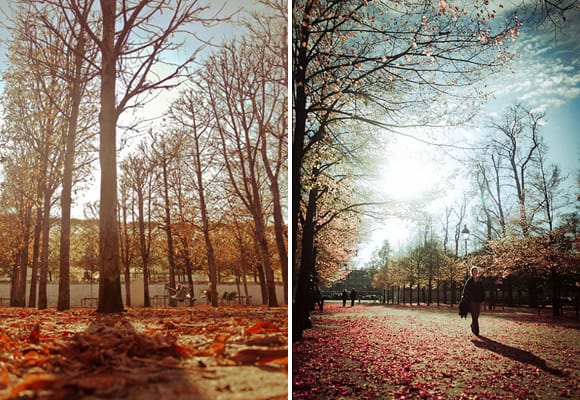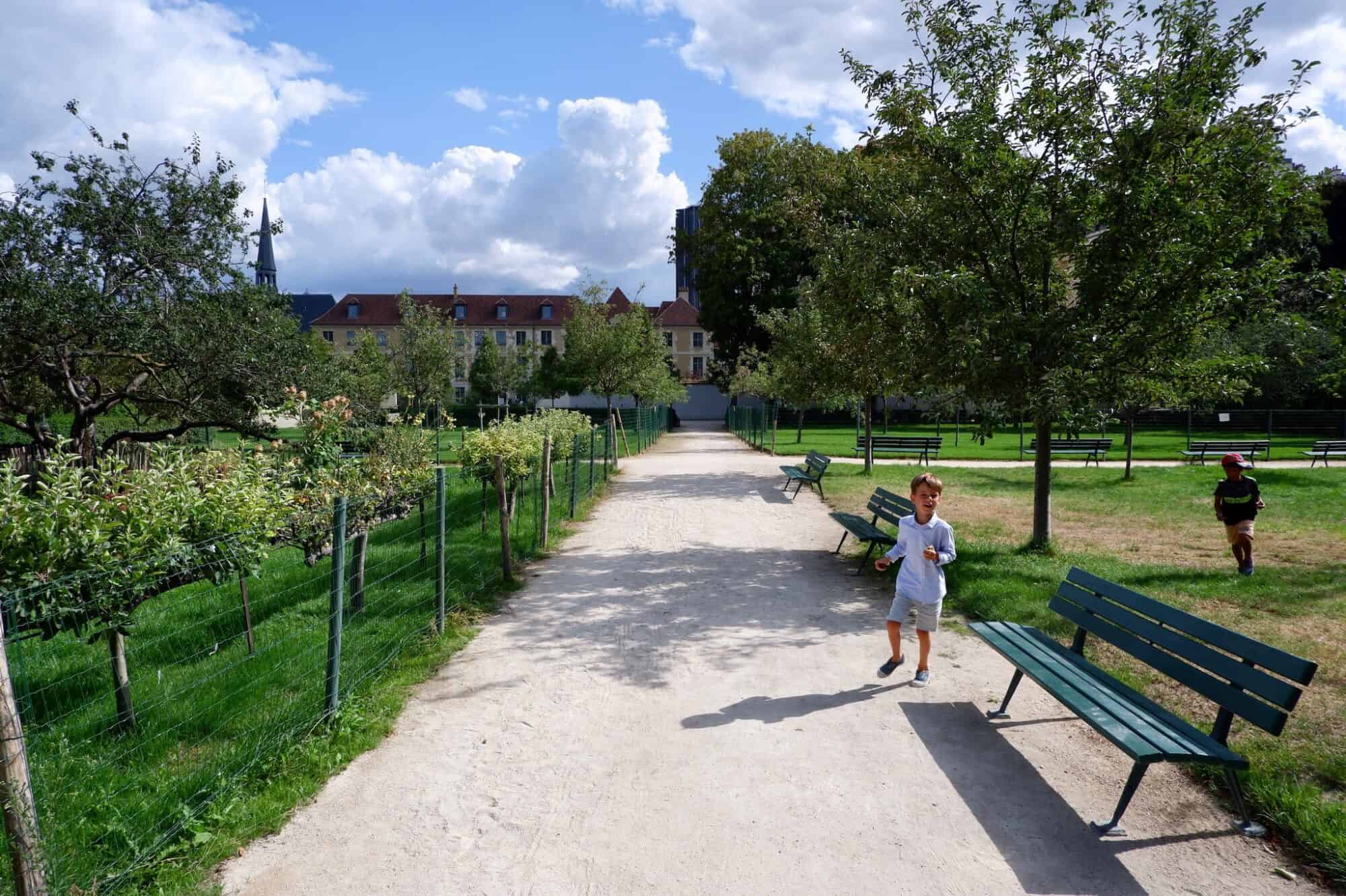Making Magique & Janellie
During my recent visit to the U.S., my sister told everyone that I live in Paris just to marvel at their reactions.
“Just stick a dagger in my heart, why don’t you,” came the response from a cosmetics salesman. “I’d give anything to live in Paris…” It garnered me bonus points in San Francisco’s chic boutiques and even scored us a table at an impossible-to-book restaurant. “My sister’s just in from Paris… hoping you might have something for us at eight?” Pas de problème.
bestarns
Every expat who lives here knows the feeling. Why? Because Paris is the culmination of our romantic dreams, the city upon which we project our fantasies of a life well lived. We’re the lucky ones who’ve somehow pulled it off. But how?
Galou
For every foreigner living in Paris – upwards of 310,000 according to the Marie de Paris – there are as many tales of how we achieved it. But there are commonalities that could help you realize your own Parisian dreams. Here are some facts about living and working in France for anyone seriously contemplating la vie en rose.
j.rakkolainen
Tourist visa. First, the easy – albeit not totally legal – way to “live” in France. When traveling to France from most countries, you will receive a 90-day tourist visa upon arrival. This entitles you to stay legally for up to three months but not to work or receive any social benefits (including healthcare). Before your 90 days are up, travel to another non-European Union country, get a passport stamp, and come back to France where you’ll be issued another tourist visa. I know people (who shall remain nameless) who’ve managed to live in Paris this way for years. Trouble is, you cannot be legally employed here. Independent wealth – or income from your home country – is kind of a prerequisite.
Sara Berger
Visa de long séjour. For those willing and able to live in France without working or studying, you can apply for a long stay visa and then a carte de séjour once you’re here. Be warned: This is not for the faint of heart. It requires proof of financial resources, private medical insurance, police clearance and massive documentation. The process begins at your local French consulate and continues on French soil at the Prefecture de Police. The good news is that navigating this process will give you true insight into the French psyche (not to mention its byzantine bureaucracy and those who staff it). But if you’re planning a longer stay to, say, start a business or take a sabbatical, this is the way to go. Let the bureaucratic battles begin!
Darice & Making Magique
Student visa. “I came as a student and never left…” It’s a common refrain among expats and remains one of the best ways to get here then figure out a way to stay. How? You must be accepted to a school in France (or an exchange program through your university) and demonstrate a financial guarantee of about $600 a month. Then it’s mostly up to your program to obtain the visa for you. The upside here is that in addition to living here legally, student visa holders can apply for temporary work permits to be employed for a number of hours per week. Remember what they say about a “foot in the door?” A temporary position has at least the possibility of leading to gainful employment – and the coveted work visa that comes along with it.
brunotto [Still very busy…]
Work visa. Ah, the French work visa, the holy grail of living and working in France. Sought by many but secured only by a lucky few, this is perhaps the toughest route to living in France long-term. Why? Competition. EU residents (and the countless native English-speakers among them) have an automatic legal right to work in France. So for a French (or international) company to hire you, they will have to prove to the government why you are better qualified for the job than a French national or an EU citizen. It’s a tough case to make – and an expensive one. A better bet is to get hired in the U.S. and get transferred to France. That way, your employer gets the work visa for you.
Carin Olsson
On a hopeful note, Paris is home to many international agencies where English is the lingua franca, UNESCO, the OECD and the International Energy Agency (IEA) among them. They hire bi-lingual workers from all over the world with particular areas of expertise, such as economics, international affairs and development, transportation, energy, gender and much more. These agencies handle visas and permits and offer tempting packages and job security to their employees. Check their websites for current openings as turnover tends to be relatively high.
bestarns
As for me? I did it the old-fashioned way – I married it. (Not a Frenchman but a Paris-bred American whose bilingualism landed him a job at an international agency). Then there’s the fairy tale I’ve heard more than a few times in Paris. “I came for a month and met my future husband in a café. That was twenty years ago…” Does it really happen? But, of course!
How about you? Dreaming of making the big move? Or perhaps you’ve already pulled it off. How did you manage it? We’d love to hear from you
Written by Paige Frost for the HiP Paris Blog. Looking for a fabulous vacation rental in Paris, London, Provence, or Tuscany? Check out Haven in Paris.
































Very interesting article. I am trying to get working visa. But it is really hard. You should have a lot of patience and positive thinking. Thank you for sharing this information. Greetings!
Interesting suggestions – I learned a lot from the facts – Does someone know where my assistant can locate a sample French Republic Long Stay Visa version to type on ?
We’re two New Yorkers who did an academic year in Paris through MICEFA! Since we left two years ago, we’ve been back three times. Starting to think we should maybe move back! Thanks for your post! 😀
This is such a great post about living and working in France!
I am an American girl from New York who is moving to Paris to study at HEC Paris this June. Feel free to visit my website at booksandbaguettes.com to join me on my journey from New York to Paris!
I will be studying, working part-time and traveling around Europe! 🙂
Hi there, I’m going back to study Postgraduate from my hometown next year. However I would like to apply for an exchange program to Paris. Do you know if I have to work for 20 hours related to my Postgrad programme? For instance if its related to Health or Business programme. Also what are the chances of getting a part time job in Paris while studying Postgad and as a non-Eu citizen? I look forward to hearing from you soon. Thank you!
What about the Foreign Legion route? Is that still available?
Thank you for this post! I’m currently on a long term visa in France which is expiring in November and I’m looking to switch over to a student visa for small work hours 🙂
I always wanted to have my life in France and the only problem it’s hard to find job with a good salary.
Bonjour tout le monde et Madame Frost,
Here’s my story on how I’m moving my life to France.
I studied abroad in Paris during the Summer of 2010 when I was 23 through my Junior College. It was then and there that I fell in love with something for the first time in my life!! Toute de suite upon returning to Los Angeles, I declared my French major, and gathered all of my credits from the last few years (which wasn’t an easy task), and I applied to San Francisco State University, while simultaneously applying to their year-long study abroad program in Paris. By Spring 2011 I was accepted into both SFSU and their program. Come August I was back in my paradise city!
I studied hard and experienced a plethora of wonder and amazement, and then met a fantastic frenchman in Poetry class in January of this year. Four months later we were PACS’d. The following month, in June, I returned to L.A. for a month, then moved here to San Francisco where I had to finish up my Senior year. My darling visited me in August/September. Right after he left, I figured out how to gather my credits together and finish up my last semester (this upcoming Spring) via corresponance [with my B.A. in French] so that when I go back in exactly two weeks and five days from today, it’s gonna be for good.
I have worked very hard to make Paris my home. I’m applying to a few Universités de Paris pour obtenir mon Master’s in Anglophone studies since I also found last year, in Paris, my calling as a teacher. If there’s one thing in life that I desire more than anything, it’s Paris. And it ain’t too bad that I also found the darling who’ll share this wonderous life with me there.
xox Cheers to everyone discovering and living their passions!
There is one more visa that you are missing. It is called La Carte Bleue Européenne (the European Blue Card) and it has only been recently launched a year and a half ago. It functions much like the French work visa, except it is a visa at the European level. You must stay in your primary host country (in this case, France) for 2 years but afterwards are eligible to work elsewhere in Europe. It is good for up to 5 years and confers the same benefits as the French visa (i.e. access to healthcare and pension, right to apply for citizenship in the future, etc.). The KEY DIFFERENCE – and this is the most important – is that there is no labour market test. Meaning that companies do *not* have to prove that there is no other French or European person capable of performing the job. This makes it much easier to get than the normal French work visa. However, it’s geared to highly skilled workers so there is a minimum salary requirement and you must already have an offer.
Milsters
(www.littlepiecesoflight.com)
I really miss living in Paris, but thanks to your blog, I can still read about it every day :)!
Very interesting. I’m not sure I could move to France permanently (some of my family did, it’s fun to visit) but I’ve always wondered how it might work.
France is challenging indeed. Luckily there are so many wonderful things to look forward to, after you muddle your way through all the admin stuff. Aie. Good luck everyone . . .
I like how some people commented that you didn’t sugar-coat the process… but I don’t think you can truly know what ‘administration’ means until you’ve completed the process. I am lucky because I got a company to sponsor me, so they took over the process, but that doesn’t entirely remove me from the pain. The documents, the certified translations, the medical appointments, the legalization of legal documents (yup!) and more have not always brought out the best in me. Nothing is written in stone, so the administration can change their minds and the requirements quite easily (and they do!), so you best be ready for any and all curve balls that might come your way. If you want to work on your patience, try moving to France.
hellobougeotte.blogspot.com
I love your post!!!! I am a French citizen who never lived there but thinking of moving to France with my young family to live for good, language and finding work are my concern. I am in a technical field (Engineer) and not sure how the job market is over in France.